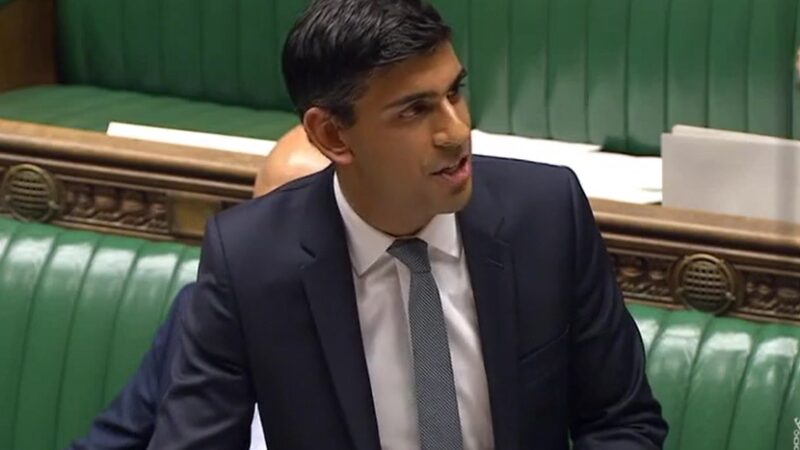For the economy to recover, we need more government investment.

The UK government’s Spending Review promised to recalibrate the economy and provide a glimpse of the future, but it is austerity light. It will do little to speed-up economic recovery or relieve hard-pressed household budgets.
Economic recovery is dependent on two key factors – investment and purchasing power of the masses. The Spending Review disappoints on both. The government trumpeted that it will borrow some £394bn this year or 19% of the gross domestic product. Some £38bn will go into public services to continue to fight the Covid pandemic and £100bn is targeted for capital investment next year. This is not enough and won’t make up for the neglect suffered during the last decade.
Unemployment is expected to rise to 2.6 million. Millions more may only have part-time work. This could be addressed by reducing the state pension age to allow some to retire early and with public sector taking up the slack, but the government offers no plan.
The government promised to address the lop-sided economic development of the country where most of the resources are gobbled up by the South East of England. Its response is disappointing. A Levelling Up Fund of £4bn for England and £0.8bn for Scotland, Wales and Northern Ireland will do little to improve the local infrastructure. Most of the money will end-up with Conservative controlled areas.
The UK is facing uncertainties Brexit uncertainties too. The Office for Budget Responsibility states that a ‘No Deal’ with the EU will wipe-off a further 2% of the economy. Yet the Chancellor said nothing about it.
Damning assessment of the government’s strategy is that the economy is expected to shrink by up to 12% in 2020, the second biggest drop in Europe, and won’t return to pre-Covid size until the end of 2022, at the earliest.
Public sector workers have suffered a decade of pay freezes and their earnings fell by 1.3% in real-terms. Average teacher pay fell by 9%. Compared to the private sector, public sector pay was at its lowest for 25 years.
There won’t be much respite for many. One million NHS workers have been promised a pay rise at a rate yet to be specified. Over two million public sector workers earning less than £24,000 a year will receive an increase of £250, which after paying income tax, additional national insurance and pension contributions will leave little to meet household costs. Teachers, firefighters, police, caretakers, civil servants and others will see their purchasing power further eroded. Queues at foodbanks won’t be shortening anytime soon.
In April 2021, the minimum wage is expected to rise from £8.72 to £8.91 per hour, but it is still less than the living wage. The Statutory Sick Pay will remain at derisory £95.85 a week. There will be no increase in Universal Credit (UC) and the Chancellor did not say whether the additional £20 UC given during the Covid pandemic would be maintained. If not, 4.5 million families will lose £1,000 of income.
It has been reported that 18% of those for whom self-employment makes up at least half their income; and 38% of those with any self-employment income have been ineligible for any government financial support. Yet the government refuses to address the issue.
Most households face 3% extra in council tax to fund social care because the government won’t fund it centrally. In January 2021, the 5% reduced rate of VAT for certain supplies of hospitality, hotel and holiday accommodation, and admissions to certain attractions will end, just when these sectors need the support.
The Chancellor said little about taxes though the small print reveals some interesting data. For example, the Eat Out to Help Out policy which offered discounts for dining at restaurants, pubs and cafes cost £849m. It has delivered little lasting benefit. The business rates holiday cost some £11.83bn. Banks and supermarkets have profited from the effects of Covid and there is no justification for subsidising them. The government won’t clawback the business rates or levy windfall taxes on such businesses.
The Chancellor needed to be bold, build new industries and redistribute income and wealth. He has failed to provide any vision. With interest rates at a historically low rate of 0.1% there is plenty of scope to borrow more to create skilled and semi-skilled jobs in manufacturing; green industries, artificial intelligence and new technologies, but the government chose not to. It is a shame that the mother of industrial revolution imports ventilators, face masks, medical gowns and other personal protection equipment. All of it could be produced at home through industries closely aligned with the National Health Service, but there is no such strategy.
With 14 million people living below the poverty line, including 4.2 million children, the government could have redistributed income/wealth by providing free schools meals for all secondary school children, sports kits for pupils, childcare for parents at work and free broadband to enable people to work from home. But “redistribution” gets no mention in the government’s 116 page Spending Review.
The Conservative policies will not lead to speedy economic reconstruction or a more equitable society.
Prem Sikka is a Professor of Accounting at the University of Sheffield and a Labour member of the House of Lords. He tweets here.
To reach hundreds of thousands of new readers we need to grow our donor base substantially.
That's why in 2024, we are seeking to generate 150 additional regular donors to support Left Foot Forward's work.
We still need another 117 people to donate to hit the target. You can help. Donate today.



